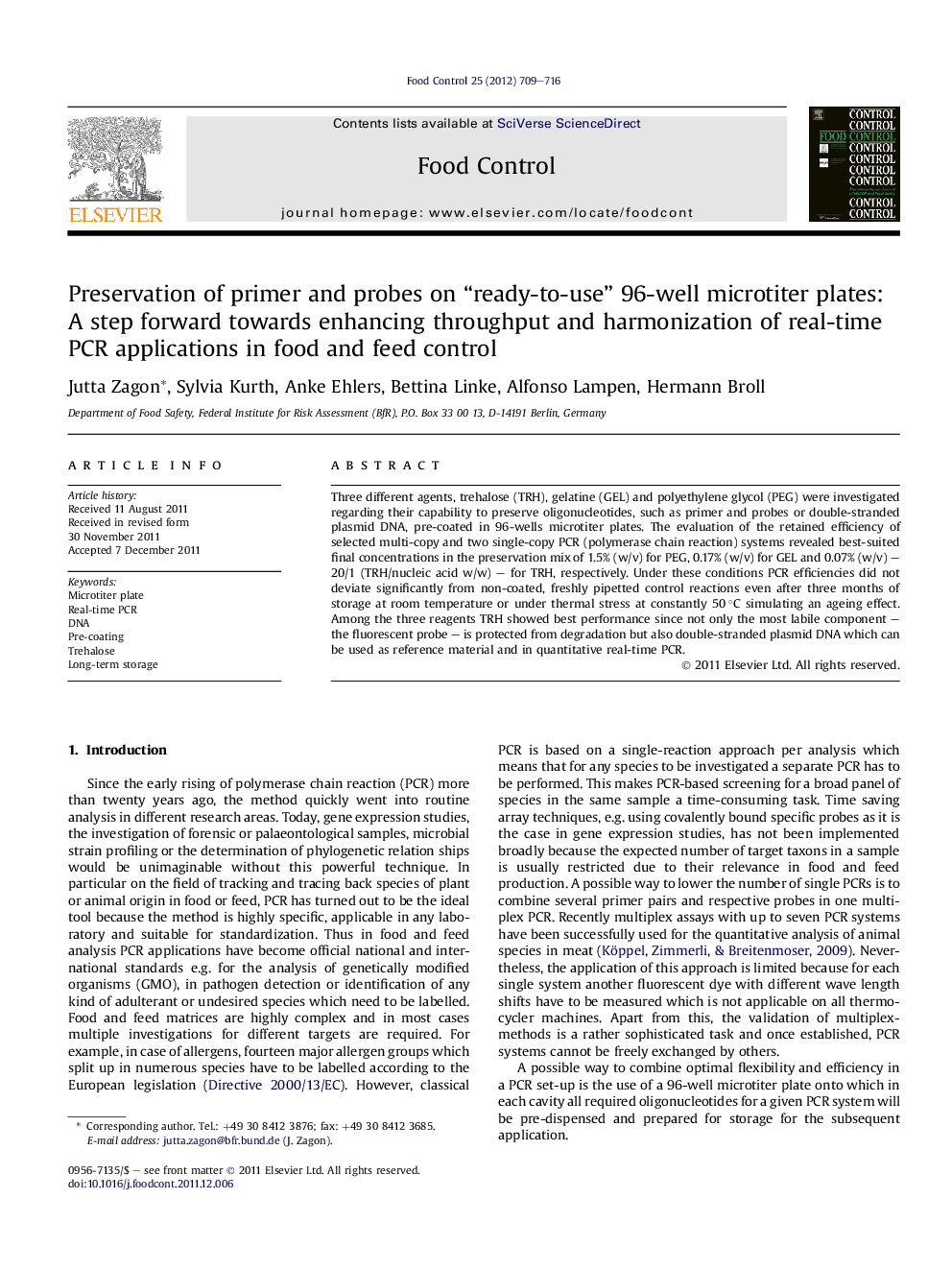| Article ID | Journal | Published Year | Pages | File Type |
|---|---|---|---|---|
| 6393653 | Food Control | 2012 | 8 Pages |
Three different agents, trehalose (TRH), gelatine (GEL) and polyethylene glycol (PEG) were investigated regarding their capability to preserve oligonucleotides, such as primer and probes or double-stranded plasmid DNA, pre-coated in 96-wells microtiter plates. The evaluation of the retained efficiency of selected multi-copy and two single-copy PCR (polymerase chain reaction) systems revealed best-suited final concentrations in the preservation mix of 1.5% (w/v) for PEG, 0.17% (w/v) for GEL and 0.07% (w/v) - 20/1 (TRH/nucleic acid w/w) - for TRH, respectively. Under these conditions PCR efficiencies did not deviate significantly from non-coated, freshly pipetted control reactions even after three months of storage at room temperature or under thermal stress at constantly 50 °C simulating an ageing effect. Among the three reagents TRH showed best performance since not only the most labile component - the fluorescent probe - is protected from degradation but also double-stranded plasmid DNA which can be used as reference material and in quantitative real-time PCR.
⺠A simple and efficient protocol for stabilization of DNA (primer, probes and plasmids) to be used in PCR was developed. ⺠Three different bio-protective agents (trehalose, gelatine and polyethylenglycol) were compared as stabilizing agents. ⺠A stabilizing effect was observed over a period of 3 month at 50 °C or at room temperature without loss in PCR performance. ⺠Trehalose in a concentration of 0.07% performed best.
